Around 1,000 protesters took to the streets of the Basque city of San Sebastián in a new Spanish protest against mass tourism a week after demonstrators stormed a beach in Tenerife.
The activists walked behind a banner that said in Basque and Spanish: “Decrease in tourism now.”
The march began at noon and was supported by about 50 regional groups and associations.
A spokesperson for organizers BiziLagunEkin, referring to claims by politicians and hoteliers, as well as many ordinary Spaniards and British tourists, that the protests risk damaging the country’s economic prosperity, said: “Tourism, which is the goose that lays the golden eggs for a few, is for the majority an economic model that suffocates us.
“We say that the city model is designed to favor the tourism industry and that means that the living conditions of residents are getting worse and worse.”
The activists walked behind a banner that said in Basque and Spanish: ‘Decrease in tourism now’
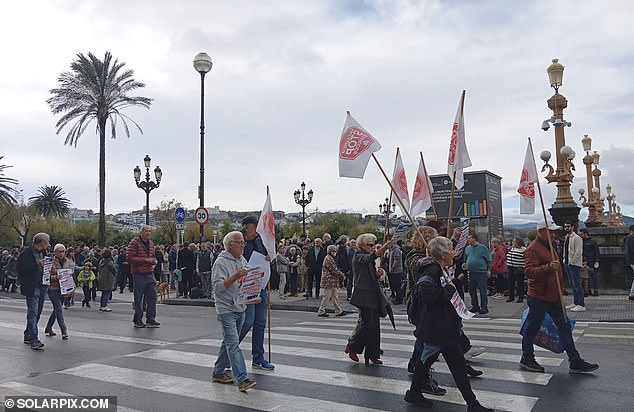
The march began at noon and was supported by around 50 regional groups and associations.
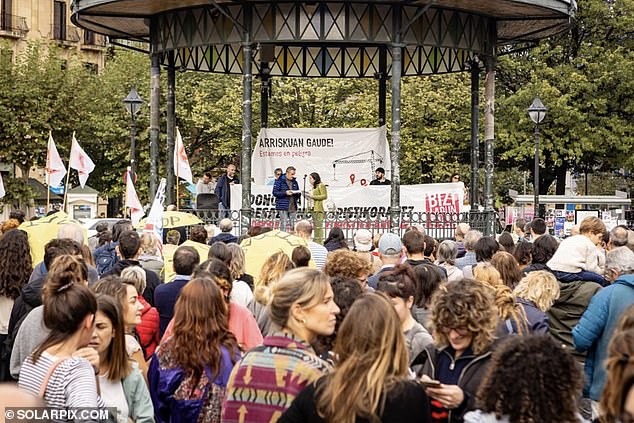
The march began at noon in a tree-lined park in front of the San Sebastián City Hall and the famous La Concha bay called Alderdi Eder.
The march began at noon in a tree-lined park in front of the San Sebastián City Hall and the famous La Concha bay called Alderdi Eder.
The protesters’ route crossed several streets of the beautiful old town and the city center.
Last Sunday thousands of protesters marched through tourist centers in six of the eight Canary Islands.
In Tenerife, 1,350 miles from San Sebastián, where protesters raised their voices about some of the same issues of lack of affordable housing due to the proliferation of Airbnb-style vacation rentals, hundreds of flag-wielding protesters stormed a beach in Playa de Las Americas, beating drums and whistles.
One couple ended up trapped in their beach towels after protesters headed straight for them on the sand carrying a banner that appeared to say “Jediondos,” which is Spanish slang for “bad smell.”
The Canaries, furious at their actions, responded by criticizing them, with one woman calling the beach protesters “imbeciles.”
A group of locals on Lanzarote, one of the islands where activists took to the streets last Sunday, six months after demonstrations against mass tourism in the Canary Islands, later launched their own pro-tourism march to the applause of British tourists.
San Sebastián, home to almost 200,000 inhabitants and considered one of the most elegant and sophisticated cities in Europe, is the latest to add its name to the noisy protests in a multitude of popular holiday destinations in Britain.
In Palma, the Majorcan capital, two major demonstrations have been held, the first on May 25, when the organizers later had to apologize for the abuse directed at some foreign tourists.
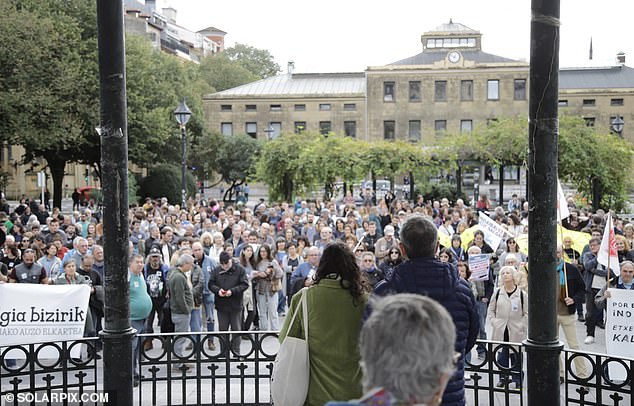
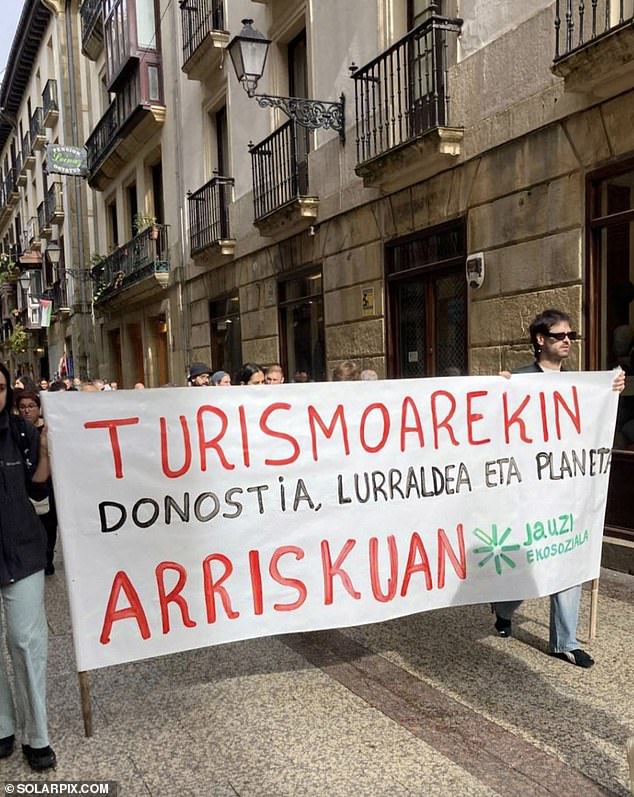
The protesters’ route crossed several streets of the beautiful old town and the city center.
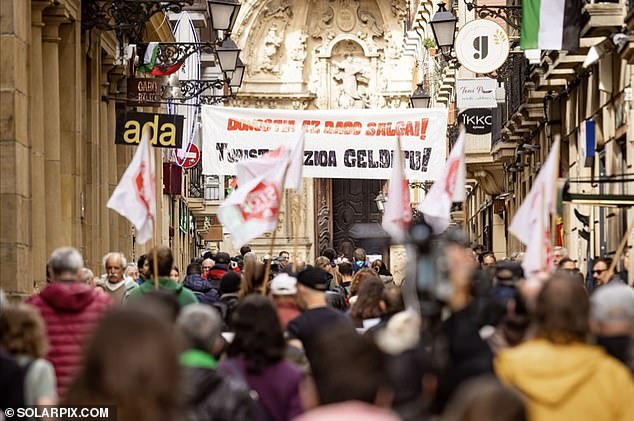
Hundreds of anti-tourism protesters took part this weekend in the latest march against excessive tourism in Spain
The shocked tourists were jeered and jeered by some locals while dining on the terraces of Palma’s Plaza Weyler.
Protesters were also heard chanting “Tourists are going home” as they passed through the central square on the 20-minute journey from the park where the protest began to the iconic Paseo del Borne street.
A second large protest in Palma on July 21 passed peacefully, although some protesters took advantage of Spain’s victory in the European Championship final to mock English tourists and others called British tourists “drunk.”
The banners they carried as they took to the streets of the island’s capital included one that said, in a pun on a photo of Kyle Walker: “The only thing coming home is you,” followed by the printed score of 2-1 between Flags of England and Spain.
Another banner carried by protesters read in English, despite regional government spokesman Antoni Costa’s pleas for locals to show “respect” to foreign visitors before the march: “Get your drunks back, Give us back our homes.”
On July 27, around 250 protesters prevented tourists from accessing a postcard beach in Menorca in a “surprise action.”
Activists boasted that they had filled a parking lot next to Cala Turqueta, a beautiful cove on the island’s southern coast, with “residents’ cars.”
They then used towels and their own bodies to capture the ‘SOS Menorca’ message in the sand next to the waterline.
In August, protesters unfurled a huge banner telling tourists on a crowded Costa Blanca beach: “Go home.”
Activists released pink flares so that tourists relaxing on the sand or cooling off in the sea would receive the message.
The protest was carried out by a group called Garrot and took place in Cala Barraca, also known as Cala Portixol, near the Costa Blanca tourist hotspot of Jávea, near Benidorm.
In July, during a protest in Barcelona against tourist overcrowding, visitors were sprayed with water guns.


